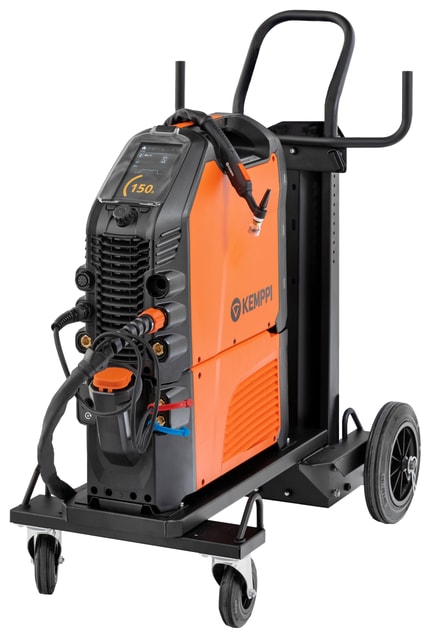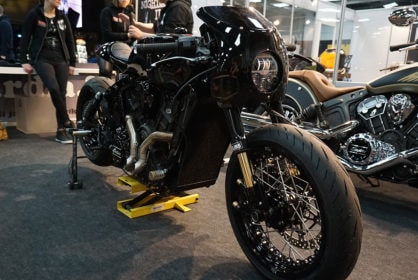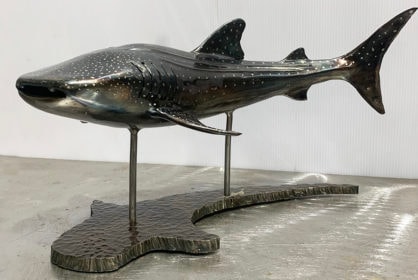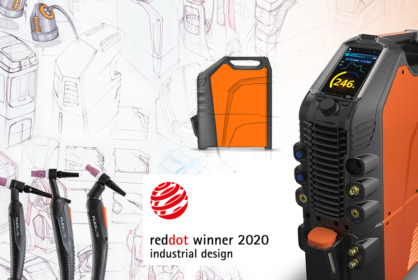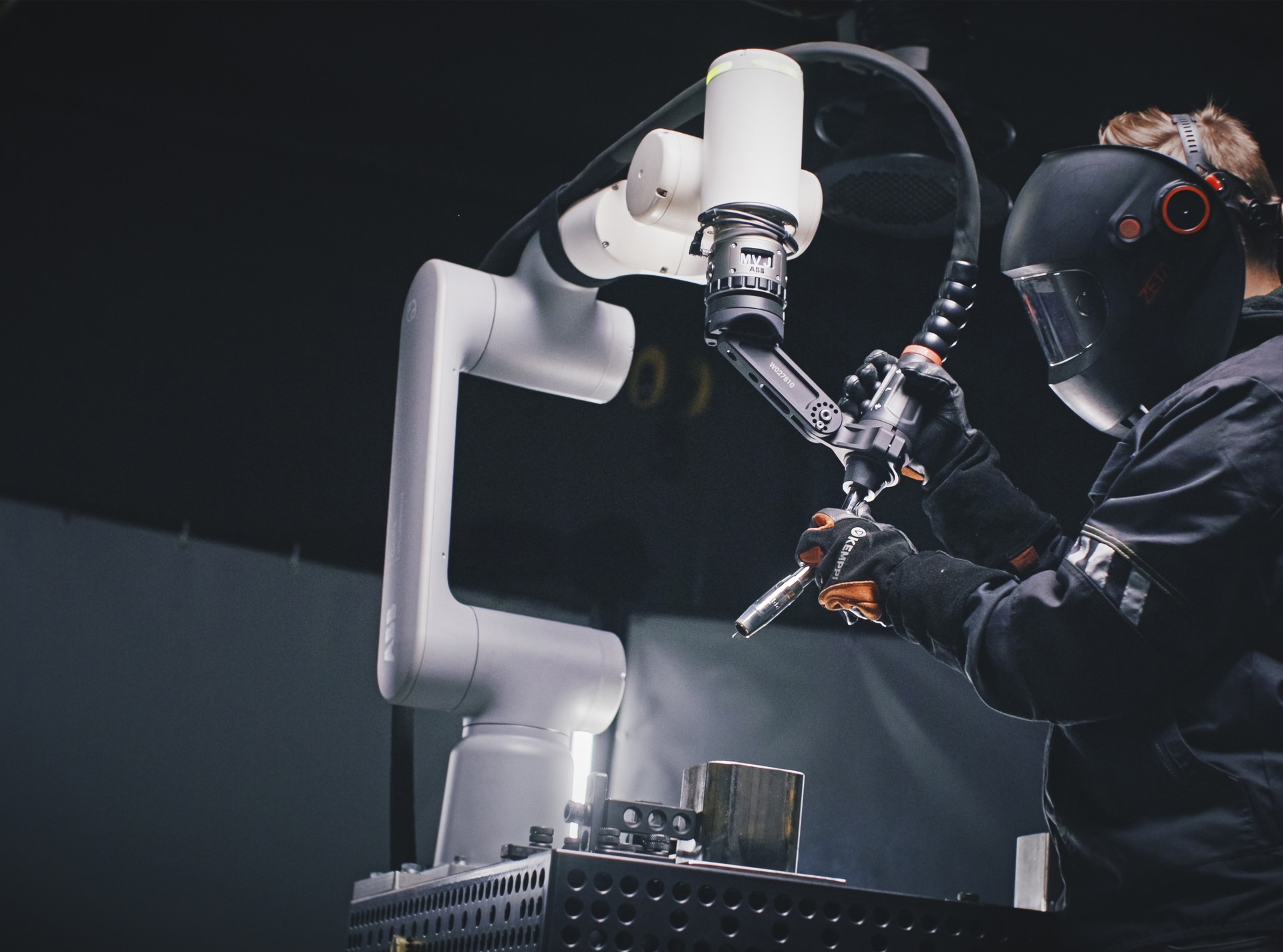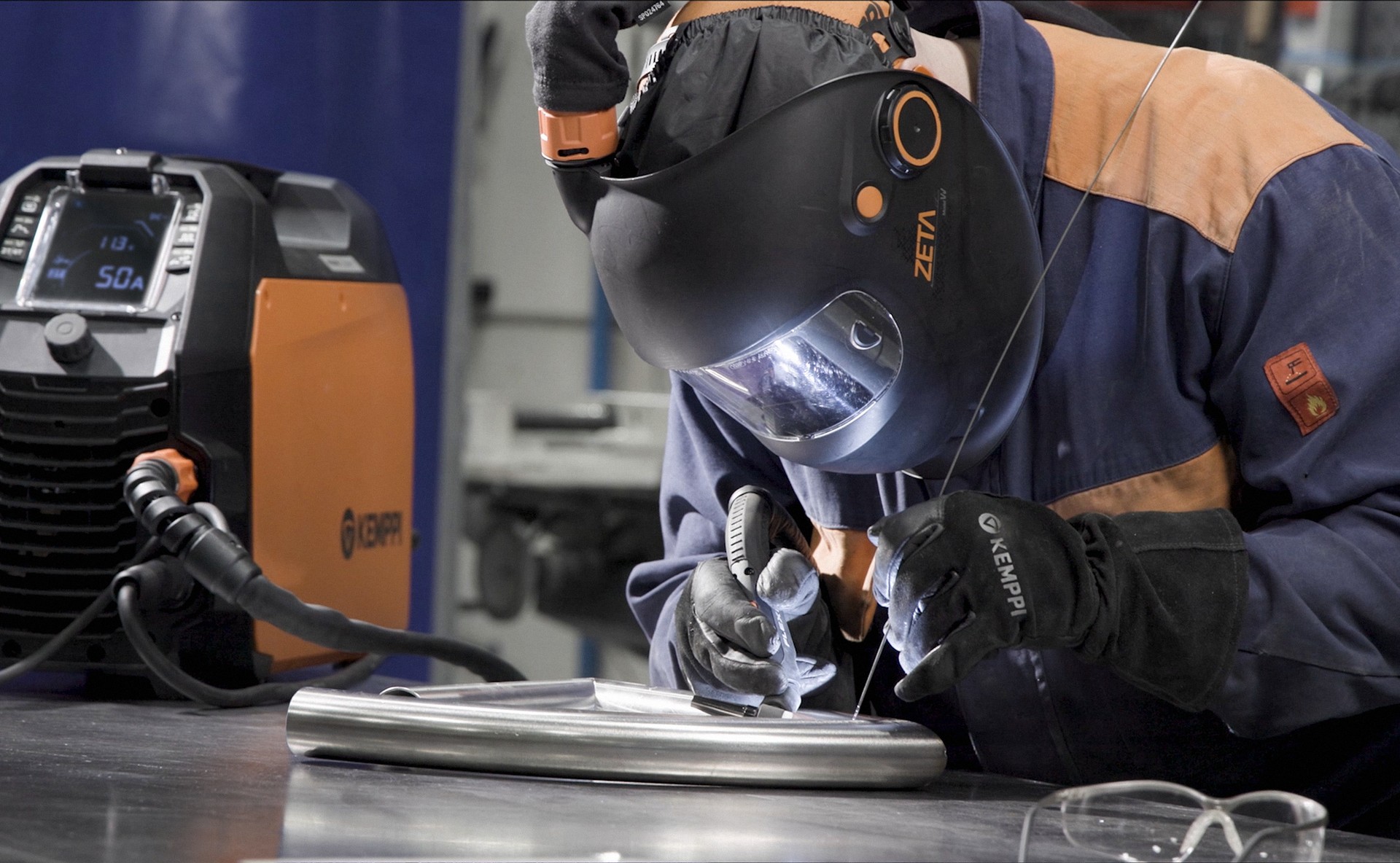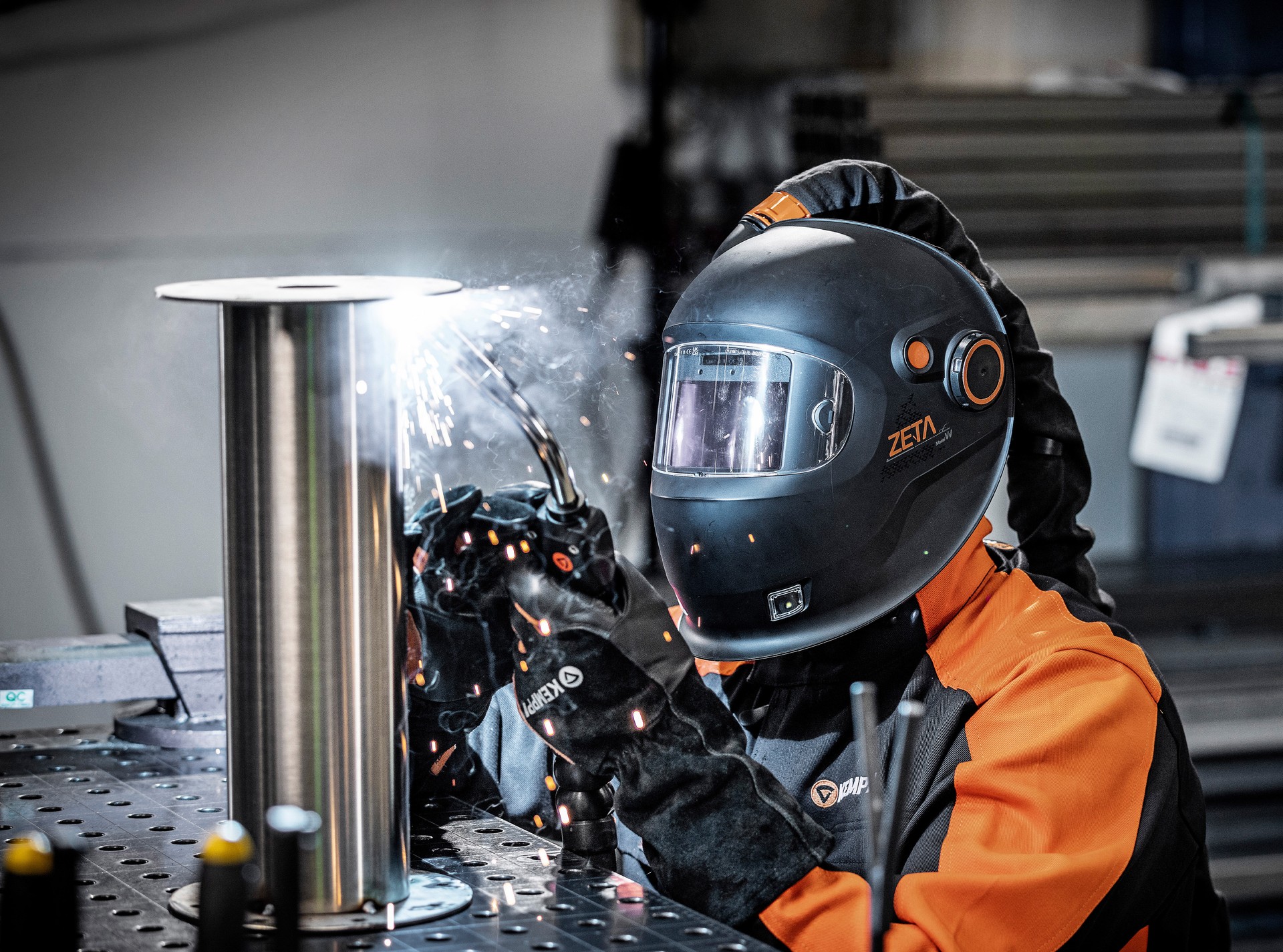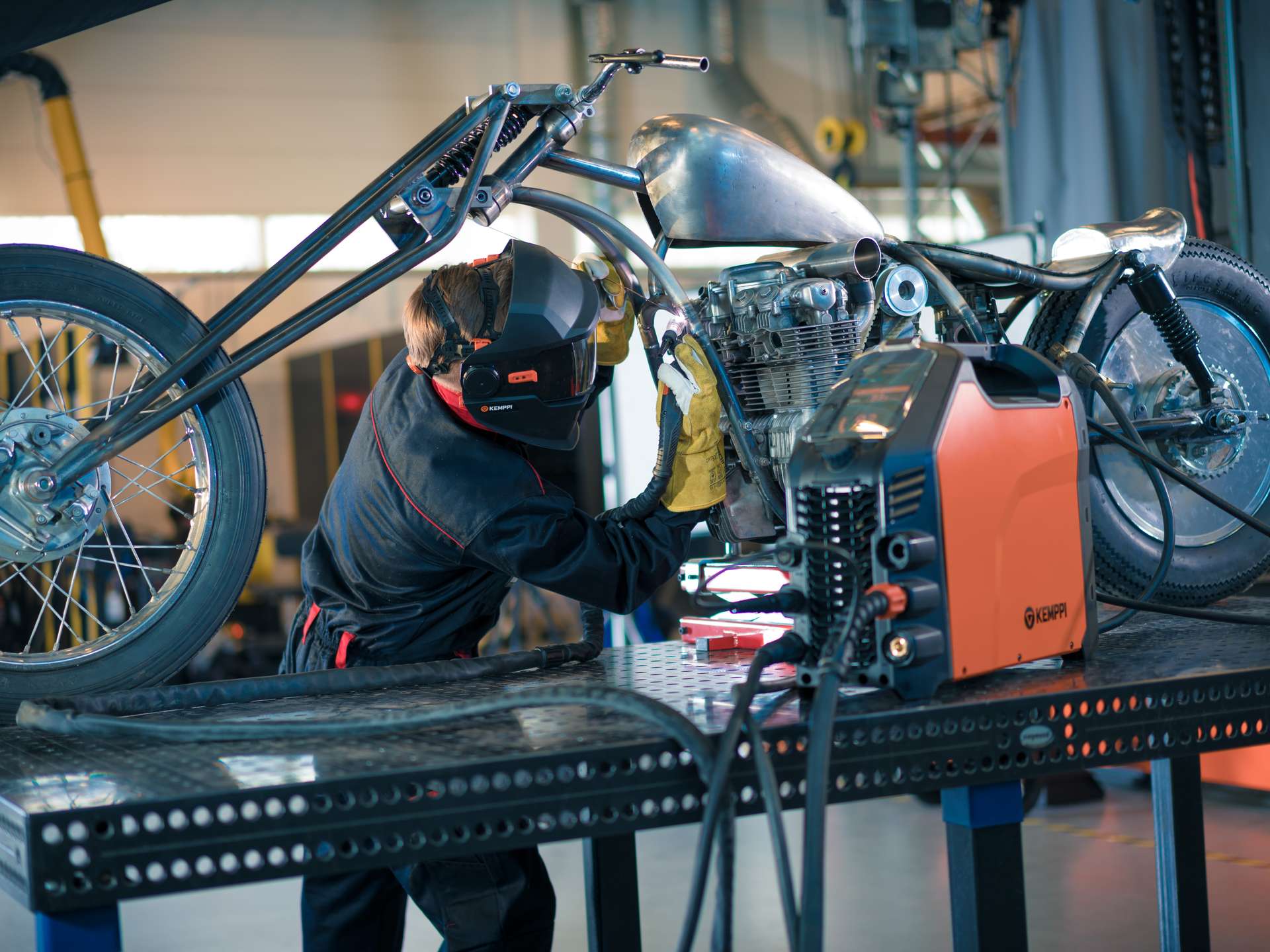
Mennesker
Welding Education Comes in Handy in Motorcycle Building
23. marts 2021
Olli Keskinen works as a welding instructor at Kemppi. His welding skills have proven useful when he builds motorcycles in his free time, but his hobby has also taught him new tricks that can be put to good use in his professional career. In the past, he has also participated in the MP Motorcycle Show in Helsinki, Finland at the same time as both an employer's representative and a hobbyist.
Jussi-Pekka Aukia
Olli Keskinen is one of the three welding instructors in Kemppi's Welding Services team. The exceptionally broad job description includes the training of Kemppi employees and customers as well as the demonstration of Kemppi welding products at trade fairs and customers’ premises, both in Finland and abroad. He also looks for solutions for customers in matters related to their production, handles customer feedback received by Kemppi, and creates training materials.
“For our part, we contribute to in-house welding insight and act as a link between the customer and Kemppi. We bring the user's perspective to the various stages of product development – for example, how a new welding torch should feel like when held in hand or what kind of welding programs should be developed for welding machines.”
The road to becoming a top welding professional
Olli Keskinen crossed paths with welding at the age of 17 after starting apprenticeship training as a sheet metal welder, which proved to be varied and interesting. Upon graduation, he completed an IWS degree while he was working. He joined Kemppi over six years ago, after which he has completed the vocational qualification of a welder, the specialist vocational qualification of a master welder, and an IWP degree.
“Confidence in my own skills has developed over time, although there is always something to learn and improve. When building motorcycles, various work methods such as welding, machining, and sheet metal work must be used.”
Because of his hobby, Olli also learned CAD drawing skills, which has also been an advantage in the work of a welding instructor.
“My interest in motorcycles grew little by little. I changed from driving a moped to driving a car as soon as I got my driving licence at the age of 18, but I had thought of motorcycles, too. My dad had ridden them all his life and still owned one. After a long deliberation, I obtained the driving licence for a large motorcycle in my early twenties.”
First motorcycle building projects
In the fall of 2012, Olli acquired a custom-model Honda Shadow 600, which he began building to look his own. “The Honda was relatively affordable and in good condition, even though it already had some miles. I had previously admired the same model built by a hobbyist online and thought of it as a good blank for a similar project.”
Olli built his own motorcycle in his parents' garage, checking for guidelines online when necessary. “I did a so-called bobbering on the motorcycle: I removed the subframe from the back and built a new rear fender, seat, and exhaust pipe. I welded the exhaust pipe and various fasteners with MIG/MAG and TIG processes. I also painted the bike and modified the lights and turn signals.”
Olli sold the Honda by late summer, as the project for next winter was already chosen. It was a Yamaha 1100 Dragstar – also a custom model, but a little bigger than its predecessor.
“I started building the new piece in the same direction, but bigger and better. I made a new gas tank, a new rear frame, fenders, seat, and exhaust pipes by hand. I also replaced the headlights and instrument panels. There was slightly more welding than in the first project, but thanks to my day job, I had all the needed skills."
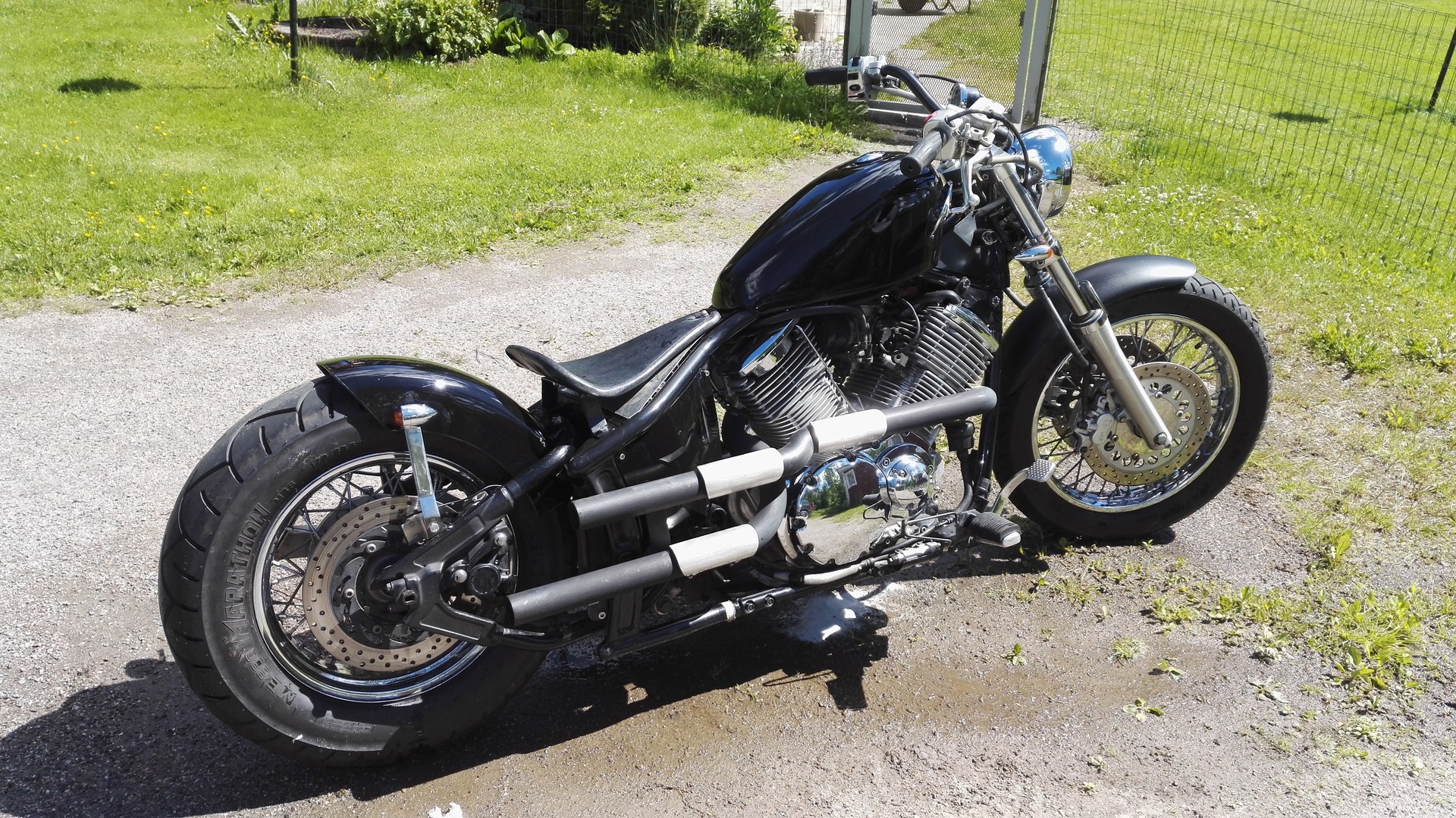
Yamaha 1100 Dragstar. © Olli Keskinen
Motorcycles to drive and play with
The Dragstar was ready by the following summer and Olli rode it for four years. Alongside it, he bought a 650cc Honda Dominator to work on. He was hungry for more, and now he could weld the motorcycle chassis as well.
“Building a motorcycle with your own hands is fun. This was the first project I bought completely dismantled. I did a complete engine repair on it and almost everything else, for example, the gas tank, the girder front end, and the tires. There weren't many standard parts left.”
At the same time, Olli and his friend built a cross-country motorcycle from an old KTM to race with at a speedway event organized annually for all-class motorists. Everyone could come and drive with just the kind of vehicle they like, as long as it moved.
“We built the KTM completely from scrap. I had a lot of extra parts from previous projects so we utilized them in this Mad Max-inspired widget. The fuel tank was actually from a Honda Monkey. We trained and also took part in the competition with it."
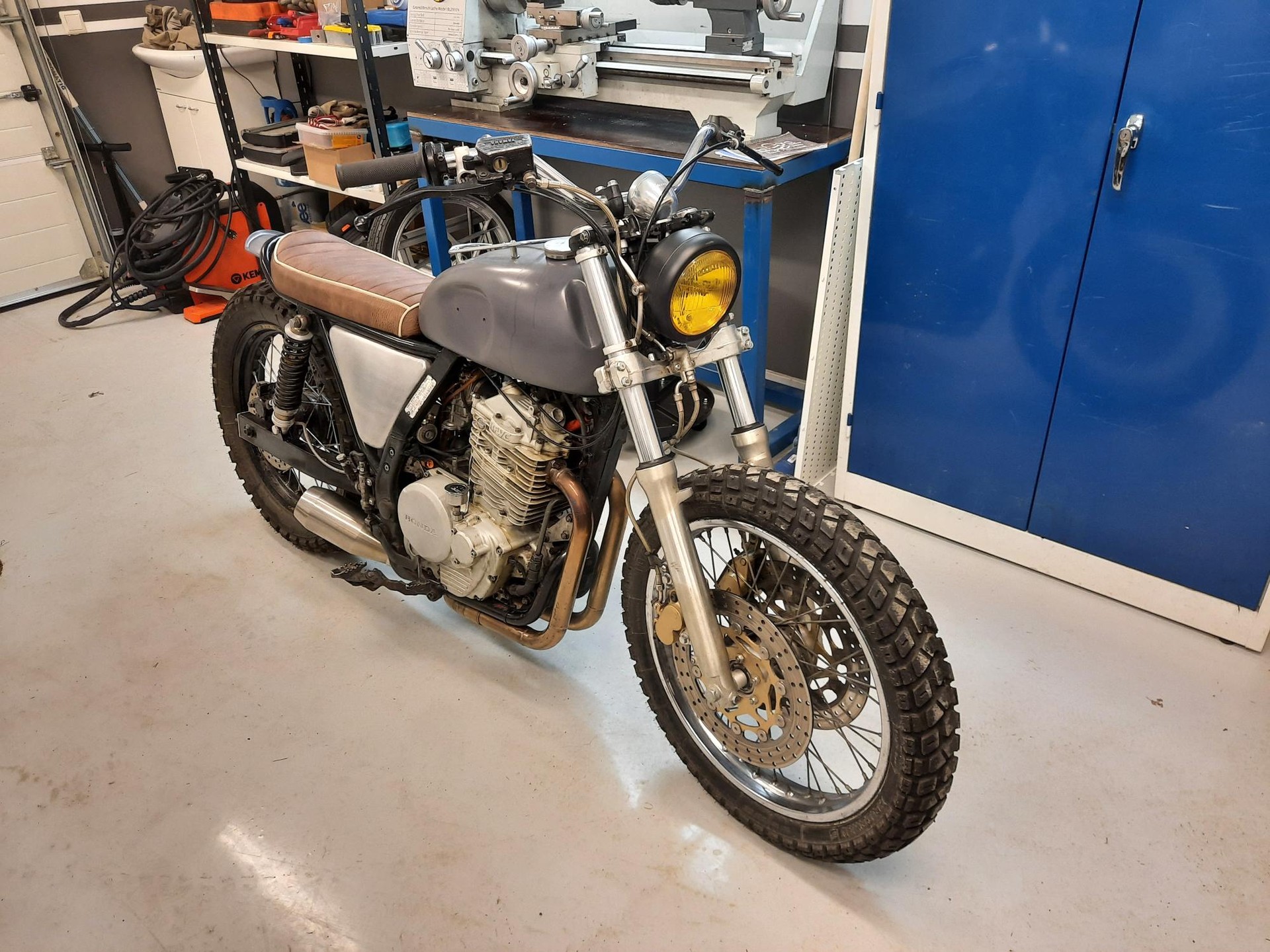
Honda Dominator. © Olli Keskinen
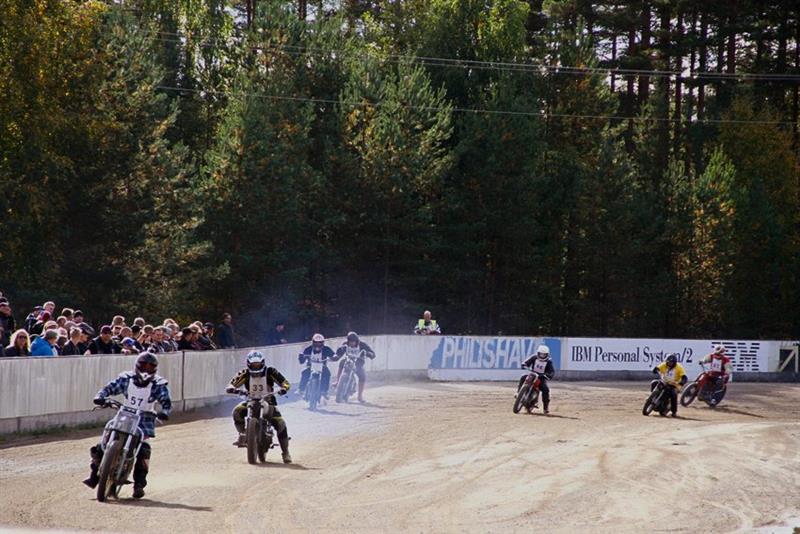
Kaanaan Kahinat, Olli Keskinen (57) currently leading the race. © Olli Keskinen
The project of all projects
Eventually, Olli sold the Dragstar but kept the Dominator he had built to drive with. The 40-year-old classic, Honda CB500 Four, was found as a new project. He has now been slowly working on it for three years – alongside work, family life, and other smaller projects.
“The CB500 was salvaged with its chassis cut from many parts. The engine was in place, but there was nothing else in it. I made the new chassis almost entirely myself. All that remained of the original were the fasteners and chassis number.”
The bike will become a low chopper with new sheet metal parts and a self-made girder front end. “I will also implement big mods on the engine side, such as a supercharger and a camshaft, which allows the engine to ignite two cylinders at a time – meaning a four-cylinder engine runs like a two-cylinder. It's just plain fun. Even though I am serious about building motorcycles, I am not that serious,” Olli laughs.
"Even when unfinished, the CB500 was suitable for Kemppi’s promotional photoshoot for the new MasterTig welding machine and now looks great on the cover of its brochure, for example."
Friends and colleagues with similar interests
Olli is involved in a group of 15 constructors that, in addition to metal work experts, includes engineers, mechanics, and also a graphic designer who helps in designing logos and T-shirts.
“We have all kinds of expertise for different tasks. We build motorcycles, ride them and go to events. Help each other out.”
Motorcycling also connects Olli with his colleagues. Kemppi's global Welding Technology group includes other motorcycling enthusiasts with whom it is nice to exchange experiences. Olli has also been able to enjoy his hobby on business trips around the world.
“For example, on a work trip to Australia in 2018, I traveled to New Zealand for a week’s holiday, rented a motorcycle, and explored the stunning scenery of the island nation. In Australia, I went to a local motorcycle cafe with custom motorcycles on display.”
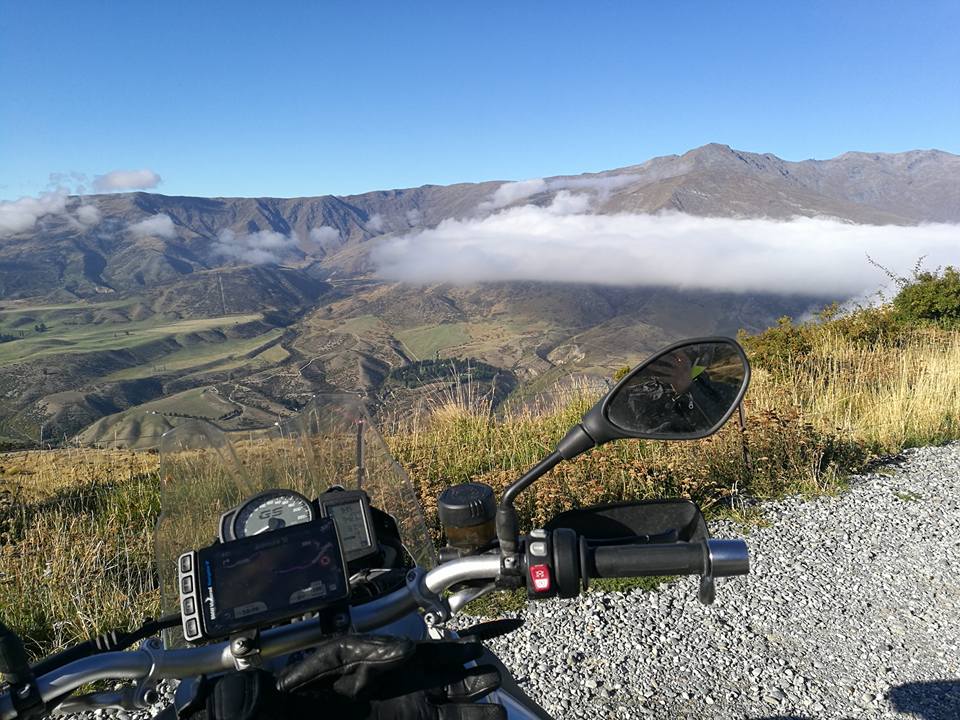
Holiday in New Zealand. © Olli Keskinen
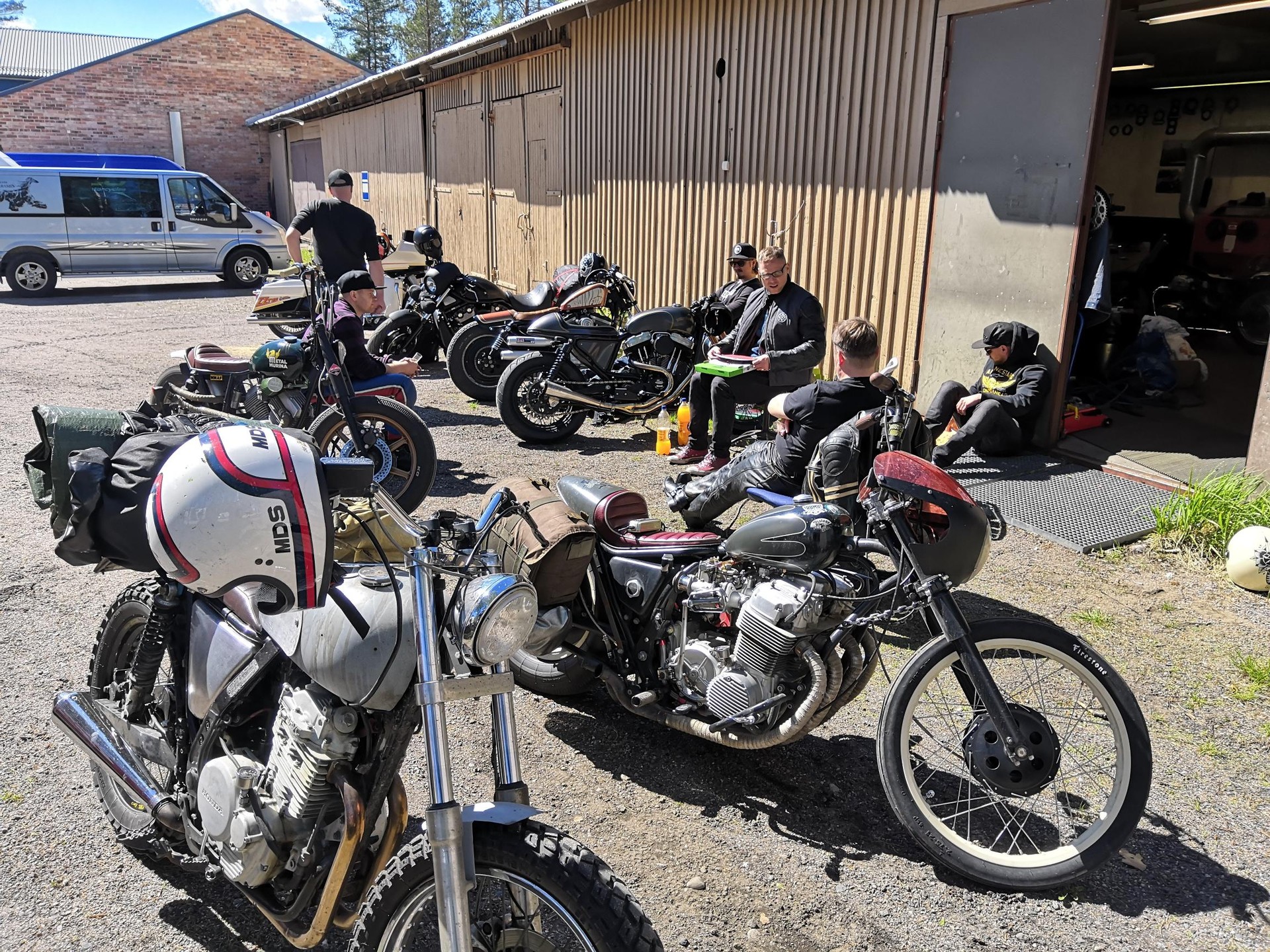
Köyhät rytärit © Olli Keskinen
Comprehensive and versatile
The biggest challenges in building motorcycles lie in repairing the old, for example, welding an aluminum block of an engine that has been covered in oil for decades.
“By the way, there is nothing miraculous about these welding tasks, as long as there is an idea involved in doing them. The weld joints have to last, as it would be quite unpleasant if the bike disassembled on the road. For me, the holistic approach in this hobby has been important, for example, the fact that I have been able to make demanding sheet metal parts using traditional methods," Olli says.
"Along the way, I had to learn how to shape fenders and other round-shaped parts by traditional sheet metal shaping methods. One fender can be made by anyone, but only a few can do two that look the same! Personally, I'm not that far yet.”
Read more about Olli's participation in the MP Motorcycle Show in Helsinki, Finland.
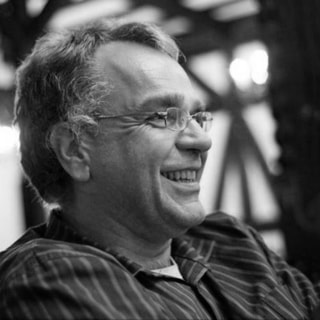
Jussi-Pekka Aukia
Jussi-Pekka Aukia
Journalist at Kriivari Oy.
